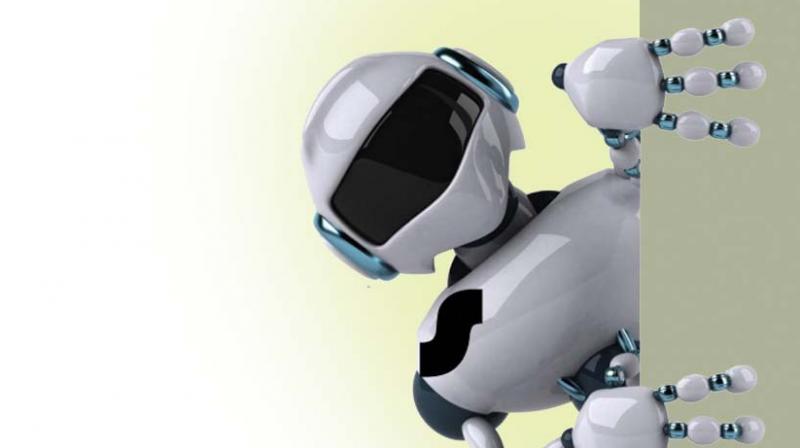Robots are coming to take our jobs

Kaiten sushi has created a $6 billion mass market in Japan. Some may thumb their nose at the “conveyor belt stuff”, but Kaiten has taken a delicacy to the people even as artisan chefs are frowning at what it might do to their job market.
The esoteric art of making sushi is not the only area democratised by the use of robots. In fact, robots have taken over many aspects of manufacturing while artificial intelligence is beginning to drive innovation in many areas.
Stephen Hawking believes robots will be the death of us. Bill Gates has been known to go down the path of warning human beings against robots, at least to the extent of proposing a robot tax. Vladimir Putin is about the only votary who believes AI will fight the next war of mankind. Elon Musk is convinced artificial intelligence will trigger the next World War.
The scientific world may not be swayed by Putin as much as by Hawking. But let’s face it — Robots and AI are coming to take our jobs. Anyone feeling smug at his desk needs to be reminded that whether robots go on to kill us or not, they will certainly take away our jobs.
The fact is even high skilled jobs seem to be in peril as AI improves and the mechanics of robots assume more chilling dimensions. In Germany, supermarket clerks don't count change anymore. You put coins into a scanner at checkout and the machine spits out the small change while the clerk, in one of humankind’s most mechanical jobs, watches the computer total up even as the customer drops his purchases in a bag. Soon, the human face of supermarket shopping might disappear, especially if Amazon’s currently futuristic looking shopping without store clerks becomes the new normal.
The increasing sophistication of machines and the comfort levels that new software brings into play are scary. Workers are not to be blamed if they are beginning to feel an existential fear build up inside them. Can the day be far off when a robot waddles in and takes a worker’s place? You could levy a Gates tax on every robot that takes away a job and use it for retraining workers, but is it the same thing as giving a man a job as it defines his whole life? If you take his job away, it denies him his personality as well. The workplace of tomorrow suggests that robots will be so prevalent the only humans needed would be to keep an eye on them.
In the first half of 2016, as many as 14,583 robots were sold in the USA. It is believed 2,65,000 robots are currently doing duty in US factories and that country is only the third largest world market, with Japan and China deploying far more. The World Economic Forum predicts that automation will take away 5 million jobs by 2020 across 15 developed nations. If you think only the people of advanced countries will lose their jobs, consider an ILO study which predicts that “as many as 137 million workers across Cambodia, Indonesia, the Philippines, Thailand and Vietnam —approximately 56% of the total workforce of those countries — are at risk of displacement by robots, particularly workers in the garment manufacturing industry”.
Even as we are reading the morning newspaper, robots are wandering around the aisles in supermarkets scanning the goods remaining on shelves to find out what is selling and what stocks to replenish, a job that would take a human several hours of physical counting to accomplish. Automated touch screen kiosks at McDonald’s are certain to take away cashiers’ jobs. Such scenarios are no more that of dystopian imagery of film makers. Robots have been around in automobile manufacturing for ages but now there is reason to fear that a turning point is fast approaching as robots get more intelligent. Driverless trucks, delivery drones, virtual Pas; what next?
A universal Basic Income, talked of in India too, is gaining some currency as innovations begin to creep into the workplace. Others speak of reskilling workers most likely to lose the basic, repetitive jobs that robots can easily take over. The more optimistic believe that increasing STEM (Science, Technology, engineering, mathematics) graduates would be the future of education and the learning to cope with the advance of AI and robots. Is the world prepared for a radical transition as Moore’s Law seems to apply as much to AI and robotics as it did once to the speed of computer chips?
When China held a robots festival with more than 1,000 robots perambulating an arena, it looked like an impressive image out of a Steven Spielberg film. But this isn’t make-believe. The threat in the image is real for mankind. The country that used to say “Teach a man to fish and you give him a livelihood” is leading the robot revolution.

